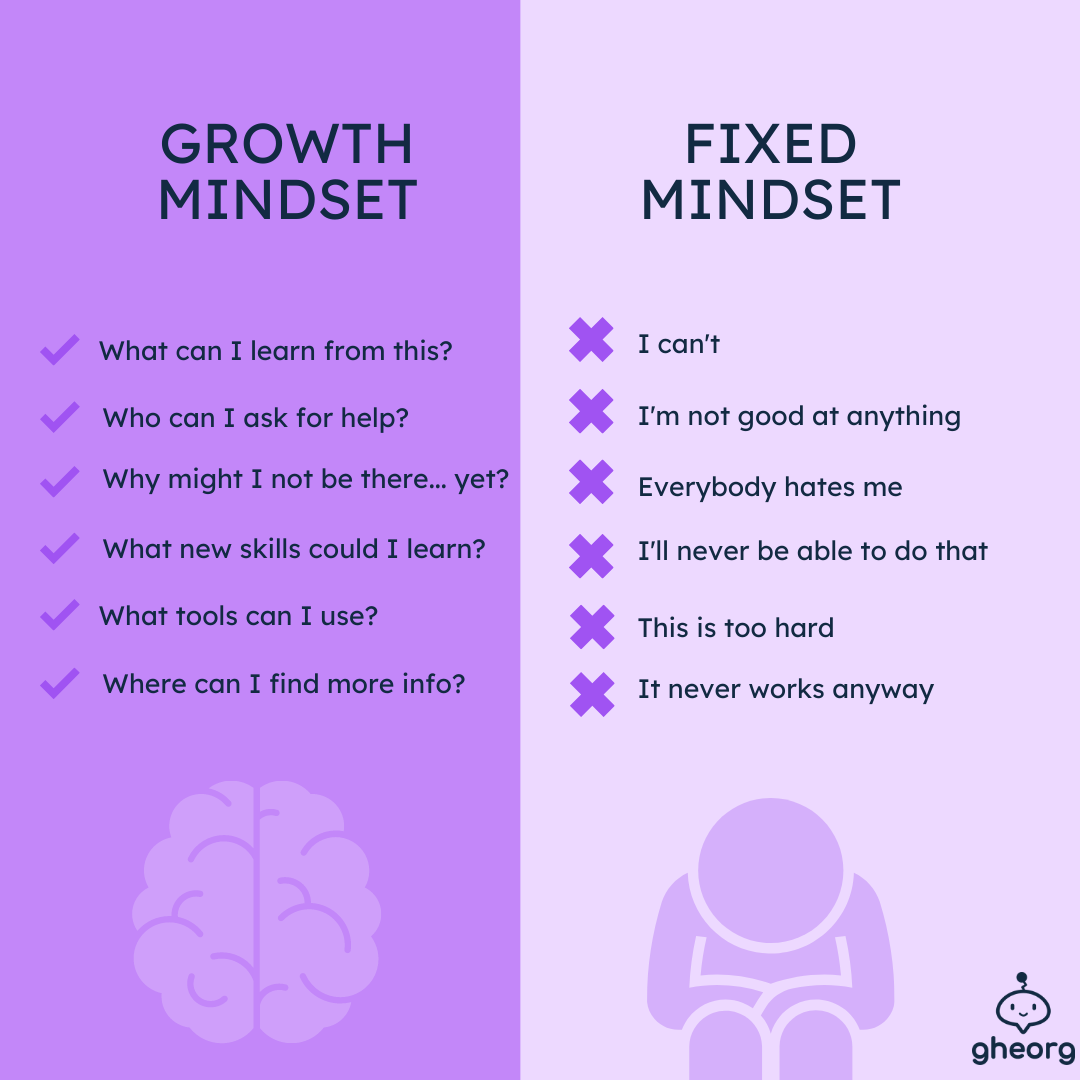How to Develop a Growth Mindset for Kids
It’s ok to allow your child to feel challenged.
Challenges are how we learn and how we grow. They contribute to a healthy mindset for kids. Depending on perspective, challenges can be a positive, neutral or negative thing.
Climbing that big tree? Challenge!
Doing your homework? Challenge.
Dealing with bullies? Big challenge :(
We are often told to ‘get outside of our comfort zone’ if we want to grow and develop. But building resilience muscles works best in a slow but steady process.
There is definitely a ‘sweet spot’ to taking on new challenges.
If you stay too close to what you already know, you're just going through the motions ... learning and achieving nothing new.
Too far out of your comfort zone, you might fall in the deep end... scared and struggling to stay afloat.
The importance of a growth mindset for raising resilient kids
Chronic failure and stress destroys confidence. Chronic failure can look like ongoing disappointments, consistently unmet needs, and expectations rarely matching reality. Over time this can erode a healthy perspective and outlook on life, leaving your child feeling stressed and anxious.
And it’s not just the mind. Anxiety and stress have tangible effects on the body too. Inadequate sleep for children affects their learning. Anxiety can also lead to isolation and depression for kids, meaning they want to stay inside more. That means less time with their friends and community, less benefits from exercise, and less time out in nature.
The result? A much smaller comfort zone, that your child no longer feels safe to leave.
The sweet spot for taking on challenges is somewhere in the middle.
Your kids are winning a lot of the time, failing some of the time. Each win is won fair and square, and each failure gains knowledge and information.
So how can we harness a ‘Growth Mindset’ for ourselves and our children to meet challenges?
⇏A fixed mindset already has it's answers. It can’t learn new things because it’s not open to new information. It defaults to a negative perception or response, without seeking proof or answers.
⇗ A growth mindset is reflective and asks for help. Ever curious, a growth mindset stays open. It looks at ‘failure’ and negative experiences as clues and signals for where to go next. And knows sometimes you just haven’t gotten there … yet.
The difference between a growth mindset and a fixed mindset
A growth mindsets is open to new information and updating beliefs, whereas a fixed mindset clings to outdated ideas and resists change.
Below you will find a table that can help you recognise the difference between a growth mindset, and a fixed mindset. Remember, it’s normal to use phrases from a fixed mindset, so don’t beat yourself up! It’s about learning more good tools to use, and slowly integrating them more and more over time.
Here are some great phrases to begin incorporating for new Growth Mindset habits:
Changing your perspective and self-talk is easier said than done!
So of course, these can be challenging questions to embrace in-the-moment. Especially when feeling big emotions.
Even adults struggle to check in with their feelings when in difficulty!
It’s important for adults and parents to take care of their mental health so they can show up as their best selves for their loved ones.
Working on your own growth mindset is one of the best ways to guide your child down the path of a healthy mindset in life.
So what actions can you take to support your child embracing a growth mindset?
(especially in the face of scary or hurtful obstacles)
Check out this handy quick reference playbook of phrases to work on with your child when supporting a growth mindset for kids:
When your child feels disappointed, lead the conversation deeper:
Try: “I feel proud of you. Can I tell you why?”
Aim: Emphasise positive skills they did display.
Avoid: Trying to ‘change their mind’ on reality.
Some helpful examples:
Give some of these phrases a try
“You kept trying, even though it was hard”
“You feel disappointed, and you’re facing those feelings instead of hiding from them”
“You didn’t achieve what you wanted, and you’re accepting it rather than blaming it on others”
“You made great progress in lots of areas, even if you didn’t get the result you wanted”
“It’s ok to feel sad right now, and we can also remember the good feelings you had along the way”
End on a positive note. Try a phrase like “Let’s count together how many little wins you’ve had so far.”
Remember: little good things add up to big great things :)
If you want to keep the growth mindset momentum up with your child, download the Gheorg app, or join our Gheorg’s Giants Facebook Group to let us know your fav growth mindset tips and tricks.

